ABS Approves Seagate Space’s Modular Offshore Launch Platform
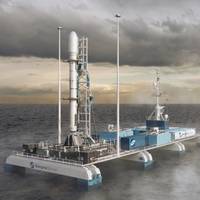
ABS has granted approval in principle (AiP) to Seagate Space for their unmanned semi-submersible launch platform – the first offshore asset to receive AiP under the newly published ABS Requirements for Offshore Spaceports.The platform, designed specifically for remote offshore launch operations and referred to as the Gateway-S, introduces a new category of modular offshore spaceport infrastructure. Gateway-S can be configured for both launch and recovery as well as disassembled into container-sized modules for transportation by sea, truck or rail, allowing for multi-site deployments.
Industry Veteran Strengthens ABS Wavesight Customer Focus

ABS Wavesight™, the ABS-affiliated maritime Software-as-a-Service company, has appointed Captain Steve Bomgardner as Chief Customer Officer (CCO).Bomgardner brings more than 23 years of maritime leadership experience encompassing operations, regulatory compliance and environmental innovation. Most recently, he served as Vice President of Shipping & Offshore Solutions at Pole Star Global, where he directed strategic growth initiatives and oversaw the integration of advanced vessel analytics into established tracking platforms.Prior to his tenure at Pole Star Global…
RINA Acquires Foreship

RINA has acquired the entire share capital of Foreship, a Finnish company specializing in naval architecture and marine engineering, from Vaaka Partners and company’s managers.The acquisition marks a further expansion of RINA’s marine engineering consulting offering worldwide, while strengthening its presence in Northern Europe.Foreship, with 2024 revenues of €15.2 million is headquartered in Helsinki and employs over 90 professionals across eight offices globally, including the US, UK and Estonia.
Some Things Have Remained the Same

President of New Wave Media, Greg Trauthwein, spoke to Knut Ørbeck Nilssen, CEO Maritime, DNV, for the latest episode of Maritime Reporter TV.Asked about what has remained the same over his 30+ year maritime career, Nilssen said: “If I look to the maritime industry, it has really maintained a fairly stable regulatory environment over all these 30 plus years. We still have the IMO, as a global regulator, which is quite rare for any industry.“We still have flag states, port states and not least…
BV Appoints New Head of Passenger Ships and Yachts for North America

Bureau Veritas Marine & Offshore (BV) has appointed Stefano Colonna as the new Head of Passenger Ships and Yachts for the North American region.With more than 30 years of leadership experience in the passenger ships and yachting industries, Colonna has held prominent roles, including Vice President of Service for North and South America at NAVIM Group, overseeing Quality Assurance and Certifications, Director of Marine Safety Operations at Carnival Cruise Line and Director of Technical Safety Operations at The Walt Disney Company.Specializing in new builds…
ABS Expands Singapore Footprint
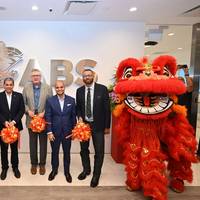
Increasing demand from shipowners for ABS services in Singapore has prompted ABS to invest in an expanded regional head office housing research and development capabilities.The Science Park Drive facility will also include a new Operation Support Center to support expanded remote survey capabilities in the Pacific region.“ABS has been investing in ensuring our capabilities in Singapore are cutting edge and able to support our clients’ rapidly evolving needs. Now we have brought…
DNV Maritime Appoints New Global Cruise Segment Director

DNV has appointed Robert Galinski as Global Cruise Segment Director, with effect from January 1, 2025.“We are pleased to welcome Robert Galinski back to DNV,” says Trond Hodne, Business Director, DNV Maritime. “His extensive experience and strong industry relationships will be instrumental as we continue to further strengthen our position in the cruise sector. His leadership will play a vital role in advancing our customer-focused strategy and driving innovation in the industry.”Based in Florida…
ClassNK Names New Leadership Team

Japan-based classification society ClassNK has named Hayato Suga as its new president and CEO, and Fumihiko Higashi as its executive vice president.Effective March 21, 2025, Suga will move from his current senior vice president role, while Higashi will advance from the current corporate officer post.Former president and CEO Hiroaki Sakashita has been appointed as chairman of the board of directors, while the former chairman of Koichi Fujiwara has assumed the position of advisor to the society.“The business environment is changing rapidly…
NorthStandard, Core Power, LR Urge UK on Maritime Nuclear Power
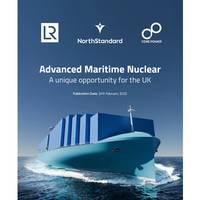
Core Power, NorthStandard, and Lloyd’s Register (LR) jointly published Advanced Maritime Nuclear: A unique opportunity for the UK. The new paper sets out a policy framework for the UK Government to support the deployment of advanced small nuclear reactors on commercial ships and FNPPs. The report argues that the Department for Transport should include nuclear-powered shipping and FNPPs in an updated Clean Maritime Plan (CMP) and long-term nuclear strategy.In the foreword to the paper…
ABS Sees Nuclear as ‘Generational Opportunity’ for US Shipbuilding

New nuclear reactor technology represents a once in a generation opportunity for U.S. industrial policy, as vessels propelled by advanced small modular reactors (SMR) could act as a catalyst for the revitalization of the country’s shipbuilding, according the Chairman and CEO of American Bureau of Shipping (ABS), Christopher J. Wiernicki.Wiernicki added he believes the next step is development of a marinized SMR demonstrator.“It is a key transformational technology. It changes the commercial model, the economics of shipping, the operation of the vessels and their design.
IACS Introduces Recommendations to Enhance Safety of Surveyors
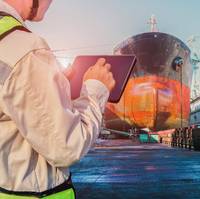
The International Association of Classification Societies (IACS) has published guidelines on safety standards for class surveyors work, Rec. 184.Highlights of the guidelines include:Comprehensive Risk Management: The document provides guidance for surveyors to exercise appropriate risk assessment and situational awareness prior to commencing work for prevention of accidents, near-misses, injury or ill health.Increased Focus on Collaboration: IACS encourages surveyors to share…
Western States to Ramp up Pressure on Russian 'shadow fleet'
Vessels of Russia's so-called shadow tanker fleet will be boarded or put on a sanctions list if they do not provide proof of insurance, Estonia's prime minister said on Tuesday.'Shadow fleet' refers to vessels used by Russia to move oil, arms and grains around in violation of international sanctions imposed on it over the Ukraine war. The vessels are not regulated or insured by conventional Western providers.A dozen Western countries - Britain, Germany, Poland, the Netherlands, five Nordic nations and the three Baltic states - agreed on Monday to "disrupt and deter" Russia's shadow fleet.Six of them - Britain, Denmark, Sweden, Poland…
IACS Updates Unified Requirement on Crankcase Explosions

As the industry shifts towards alternative fuels in response to environmental regulations and sustainability goals, the safety risks associated with these fuels cannot be overlooked, says the International Association of Classification Societies (IACS). Crankcase explosions, a critical hazard in engine operation, becomes even more concerning in the context of gas and low flashpoint fuels. IACS has therefore published the latest edition of Unified Requirement (UR) M10, which introduces…
IACS Withdraws UR H1: Control of Ammonia Releases
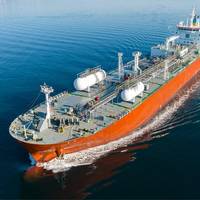
In light of the evolving regulatory landscape for ammonia as a maritime fuel, and the recent finalization of the IMO’s draft interim guidelines on ammonia, the International Association of Classification Societies (IACS) has withdrawn Unified Requirement UR H1, “Control of Ammonia Releases in Ammonia Fuelled Vessels.”The news comes ahead of its scheduled implementation date of January 1, 2025. IACS says the decision stems from the differences between its safety parameters and those outlined in the IMO Interim Guidelines.
IACS Publishes UR on Synthetic Materials in Propeller Shaft Bearings
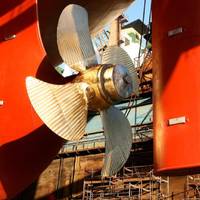
The International Association of Classification Societies (IACS) has published a new Unified Requirement, UR M85, providing comprehensive technical guidelines for type approval testing of synthetic materials used in aftmost propeller shaft bearings.Recognized as a critical component of a vessel’s propulsion system, these bearings are essential for long-term operational safety and efficiency.The new UR M85 establishes a robust framework for type approval testing to address what it says is a vital gap in maritime standards.
ABS Reports Fleet Growth, Superior Safety Record

"Safety is more than just compliance. It is now synonymous with security, reliability, collective relationships and people. Safety is also becoming systems based rather than rooted in prescriptive rules or specific component procedures. Only by embracing a proactive, systems-oriented approach to safety, can the maritime industry navigate the path to a decarbonized future while ensuring the well-being of its seafarers and the protection of the marine environment.” That was the message from Christopher J.
GIT Coatings Earns 'Industry-first' LR Type Approval
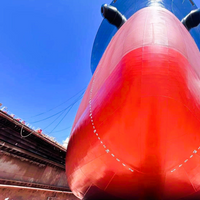
Lloyd’s Register (LR) has granted the maritime industry’s first Enhanced Antifouling Type Approval to GIT Coatings.This new approval establishes a benchmark for antifouling coatings, responding to the increasing demand for effective biofouling management. Such advancements are crucial for decarbonization initiatives and for the protection of marine ecosystems.As the first classification society to offer this service, LR provides ship owners and operators with verified assurances regarding the performance of antifouling coatings…
Shipping is Entering the Fifth Industrial Revolution, Says ABS Chief
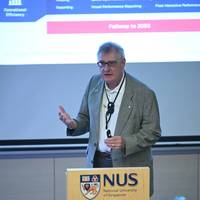
Artificial intelligence (AI) is set to revolutionize shipping by enhancing safety and efficiency, Christopher J. Wiernicki, ABS Chairman and CEO, said, while also noting the growing importance of the human touch in this high-tech era.“Maritime 5.0 will be defined by the ever-expanding capabilities of artificial intelligence, driving our complex industry to be safer, more efficient and more optimized, while emphasizing the increasing importance of the humans in the loop,” Wiernicki said…
ABS Unveils Rules for Floating Nuclear Power Plants
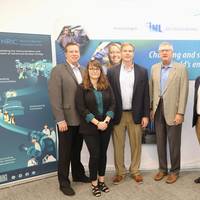
The industry’s first comprehensive rules for floating nuclear power plants have been unveiled by American Bureau of Shipping (ABS) at a forum for nuclear industry leaders held jointly with Idaho National Laboratory (INL).Held at ABS’ world headquarters in Texas, the event saw presentations on the latest reactor technologies from leading companies and publication of a detailed study from ABS and Herbert Engineering modeling the design, operation and emissions of a floating nuclear…
Maritime Industry's Fuel Quality Issues Persist
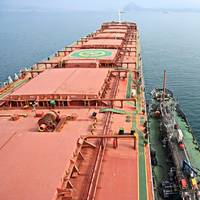
Ongoing concerns around fuel quality continue to be a critical factor and significant expense for the maritime industry, according to the Lloyd’s Register (LR) Fuel Quality Report 2024.The report, produced by LR’s Fuel Oil Bunker Analysis and Advisory Service (FOBAS), reveals the overall state of fuel quality in 2024 remains much like that of the past few years, particularly since the transition to predominantly very low sulphur fuel oil (VLSFO) in 2020. Persistent issues such as cat-fines…
Samsung Heavy Industries’ FCSU Design Earns Approval from Bureau Veritas
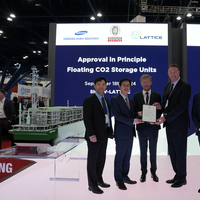
South Korean shipbuilder Samsung Heavy Industries (SHI) has been awarded an approval in principle (AIP) for its Floating CO2 Storage Unit (FCSU) design from classification society Bureau Veritas (BV).The AIP certificate was presented to Haeki Jang, Chief Technical Officer of SHI, by Matthieu De Tugny, President of Bureau Veritas Marine & Offshore, during a ceremony at Gastech 2024.The floating CO2 storage unit features a free-form pressure tank design, equipped with Lattice Pressure Vessel for CO2 storage that is equivalent to the IMO Type C cylindrical tanks.
Hanwha Ocean's Rotor Sails Earn DNV Type Approval
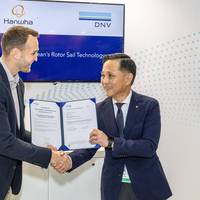
Classification society DNV has awarded Hanwha Ocean Type Approval Design Certification (TADC) for its innovative rotor sail technology, the first certification of a rotor sail approved for installation in hazardous zones in South Korea.The TADC confirms that Hanwha Ocean's Rotor Sail, designed with composite materials, is in line with DNV and international safety standards, guidelines and regulations and ready for practical application on commercial vessels. The certification process involved detailed design reviews and assessments…
ABS Grants Approval for Wison's New FLNG Design
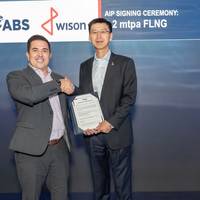
A new design for a 268-meter floating liquefied natural gas (FLNG) facility from Wison New Energies received approval in principle (AIP) from classification society ABS.The unit is designed to perform offshore and at-shore with an expected production capacity of 1.2 million tonnes per annum (mtpa). ABS completed design reviews based on class and statutory requirements.“ABS offers world-class engineering services and is proud to be able to support innovative designs from pioneering clients like Wison.













